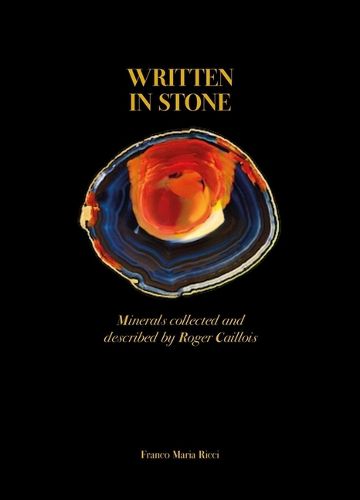Readings Newsletter
Become a Readings Member to make your shopping experience even easier.
Sign in or sign up for free!
You’re not far away from qualifying for FREE standard shipping within Australia
You’ve qualified for FREE standard shipping within Australia
The cart is loading…






Roger Caillois' extraordinary collection of stones is illustrated along with texts that trace his profile as an eclectic and atypical intellectual. Even though they belong to the mineral kingdom, the stones in the collection of the French writer Roger Caillois appear miraculously similar to works of art. Beginning from this mysterious but captivating link between two such apparently distant universes, the book collects a carefully curated selection of the finest stones in the collection and recounts the life of Caillois (sociologist, member of the surrealist movement...), reviewing and presenting his essays on stones. The persona and the personality of this atypical 20th-century intellectual emerge from the essay by Stefano Salis, who introduces us to Caillois' world and that of Marguerite Yourcenar, who took his place in the Academie de France after his death with a speech reviewing his life and work. The literary critic Carlo Ossola traces the outlines of the cultural climate in which Caillois lived and operated, while Francois Farges, now in charge of the collection, illustrates it in the final essay.
$9.00 standard shipping within Australia
FREE standard shipping within Australia for orders over $100.00
Express & International shipping calculated at checkout
Stock availability can be subject to change without notice. We recommend calling the shop or contacting our online team to check availability of low stock items. Please see our Shopping Online page for more details.
Roger Caillois' extraordinary collection of stones is illustrated along with texts that trace his profile as an eclectic and atypical intellectual. Even though they belong to the mineral kingdom, the stones in the collection of the French writer Roger Caillois appear miraculously similar to works of art. Beginning from this mysterious but captivating link between two such apparently distant universes, the book collects a carefully curated selection of the finest stones in the collection and recounts the life of Caillois (sociologist, member of the surrealist movement...), reviewing and presenting his essays on stones. The persona and the personality of this atypical 20th-century intellectual emerge from the essay by Stefano Salis, who introduces us to Caillois' world and that of Marguerite Yourcenar, who took his place in the Academie de France after his death with a speech reviewing his life and work. The literary critic Carlo Ossola traces the outlines of the cultural climate in which Caillois lived and operated, while Francois Farges, now in charge of the collection, illustrates it in the final essay.